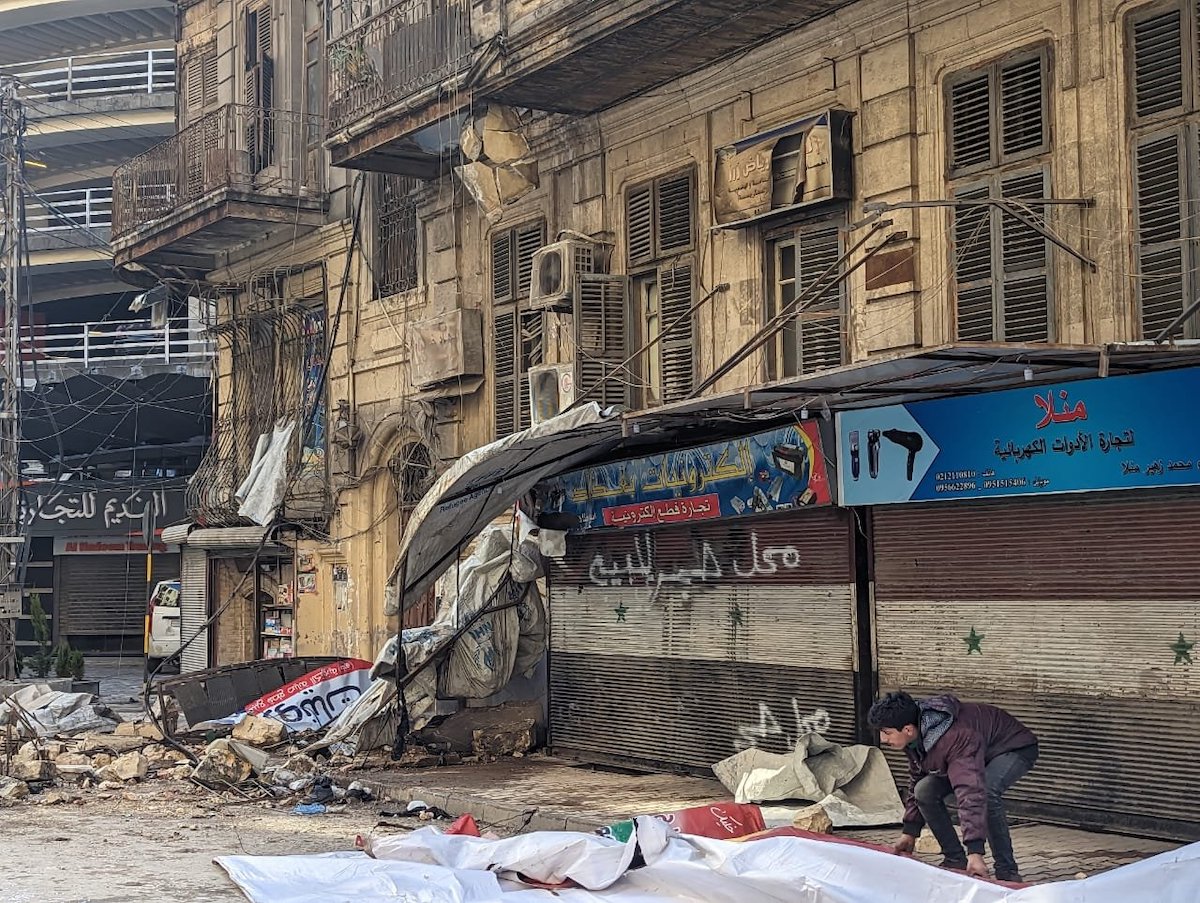By Justin McLellan, Catholic News Service
VATICAN CITY (CNS) — Pope Francis urged all people to be in solidarity with the regions of Turkey and Syria struck by two powerful earthquakes early Feb. 6 and that are “in part already martyred by a long war.”
The two earthquakes, which both measured above 7.0 magnitude according to the United States Geological Survey, struck southern Turkey and impacted large swaths of neighboring Syria. As of midday Feb. 8 local time, the death toll had climbed over 11,200 and the number of dead was expected to climb further as rescue teams continued to search through the rubble of toppled buildings.
Pope Francis prayed for the thousands of dead and wounded at his general audience Feb. 8 and expressed his closeness to the victims, their families “and all who suffer from this devastating calamity.” The pope also thanked aid workers responding to the crisis.
Hundreds of foreign engineers, medical personnel and rescue workers have been sent to Turkey and Syria to search for people trapped under wreckage and aid the thousands without shelter in freezing winter conditions.
“Let us pray together so that these our brothers and sisters can go forth in the face of this tragedy, and let us ask Our Lady to protect them,” Pope Francis said. He then led the recitation of the Hail Mary with the thousands of visitors and pilgrims gathered for his general audience.
Hours after the earthquake Feb. 6, Pope Francis sent two telegrams to Turkey and Syria to express his spiritual closeness to those affected.
Bishop John Dolan urges Catholics in the Diocese of Phoenix to make an emergency gift through Catholic Relief Services as the death toll rises in Turkey. support.crs.org/donate/earthquakes
A variety of Catholic charitable and aid organizations are part of the relief efforts. Caritas Internationalis, the umbrella organization of national Catholic charities, immediately launched a fundraising campaign and a request for donations of winter clothing especially for infants and young children. The charity has been active in Turkey since 1991 and in Syria since 2011, primarily providing aid to refugees.
Speaking to the L’Osservatore Romano, the Vatican newspaper, Bishop Paolo Bizzeti, apostolic vicar of Anatolia, said that the earthquakes were “a tragedy within a tragedy,” since the region is already “full of refugees from various countries who have fled terrible situations.”
While aid is being sent through Caritas Turkey, he said, “it is difficult to receive the aid necessary given the state of the roads.” Bishop Bizzeti added that the aid must be properly “spaced out” to ensure it lasts the duration of the relief efforts.
Aid to the Church in Need, a pontifical foundation that provides aid to Catholic communities worldwide, is supporting reparation projects in Aleppo, Syria, to allow people to return to their homes. The charity said an estimated 7,500 people slept in Aleppo’s churches, convents and other locations the night of Feb. 7. The Pontifical Mission Societies in the United States has also created a fund to support Catholic dioceses and partner organizations in Turkey and Syria.
Jesuit Father Tony O’Riordan arrived in Aleppo, Syria, Feb. 7 to lead Jesuit Refugee Service’s response to the crisis. In a statement, he said JRS’ priority is to reopen its health clinic in Aleppo and help protect people against the cold. The Jesuits have also opened their building in Aziziyé to host people without shelter.
The Middle East Council of Churches is calling for aid to be sent to the region, and for sanctions to be lifted on Syria to allow for access of relief materials.
The Catholic Near East Welfare Association launched an emergency campaign to shelter survivors and provide bedding, food, medicines, nursing formula, diapers and clothing to more than 2,000 families for three months in the Aleppo and Hama areas of northern Syria.
Catholic Relief Services, the overseas aid agency of the Catholic Church in the United States, was collecting funds to assist its local partners, Caritas Turkey and Caritas Syria, particularly in Aleppo and Lattakia, Syria, where extensive damage has been reported.






